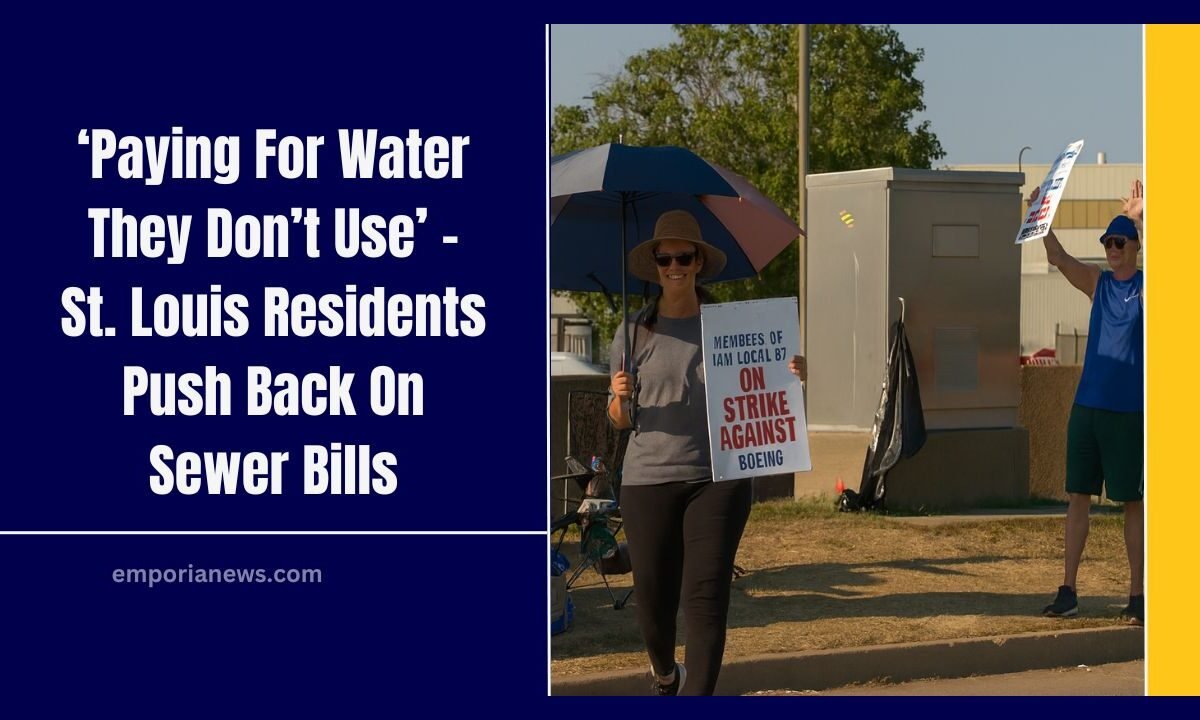Frustration is boiling over in St. Louis as residents challenge what they call unfair and outdated sewer billing practices.
Many say they are paying for water they don’t use, while the Metropolitan St. Louis Sewer District (MSD) insists its billing system is fair and even saves customers money.
The controversy has ignited debate over how nearly 82,000 unmetered households are billed, compared to only 13,000 metered accounts, and whether the city should finally invest in universal water metering.
How the Current Billing System Works
St. Louis has two separate water agencies — the Water Division, which handles drinking water, and MSD, which manages wastewater and stormwater.
Most unmetered households are billed based on a decades-old formula from the 1950s, using the number of bathrooms, toilets, and other fixtures rather than actual water usage. This is where many residents say the system becomes unfair.
| Type of Account | Number of Accounts | Average Monthly Bill (FY 2025) |
|---|---|---|
| Metered | 13,000 | $61.04 |
| Unmetered | 82,000 | $67.63 |
MSD claims the difference is minimal and that rates for unmetered homes even dropped 1% this year. However, residents argue that the system overcharges small households and seniors, while benefiting large families or multi-tenant homes.
Residents Say They’re Being Overcharged
Benton Park resident Cheryl Glass says her once family-filled neighborhood is now populated by one or two people per home — yet they pay sewer rates as if large families still lived there.
“I am angry because St. Louis city unmetered residents pay MSD twice what metered residents pay,” Glass said.
De Laurent, who owns four properties, says his smaller city home’s sewer bill is nearly double his larger Brentwood home that even has a pool. He believes lower-income city residents are hit the hardest, generating millions of extra dollars for MSD that aren’t being used to fix infrastructure.
Retired mechanical engineer Matt Kottraba estimates that installing meters for 81,000 homes would cost $240 million. He believes meters are avoided deliberately because the current system generates more revenue.
“This thing is a cash cow,” Kottraba said. “If they truly metered most residents, they couldn’t justify charging as much as they do.”
City Officials Respond
Mayor Cara Spencer acknowledges the burden of flat-rate sewer billing on families, noting that most households pay more for sewer than for water.
However, she warned that installing meters citywide is financially unrealistic as the Water Division is already running a $12 million deficit due to unpaid bills and infrastructure needs.
| Financial Snapshot | Amount |
|---|---|
| Unpaid Water Bills Since COVID | $12 million |
| Estimated Meter Installation Cost | $240 million |
| Water Division Status | Operating in the red |
“We’re projected to run out of funds in just a couple of years,” Spencer said. “That would be disastrous. Our water department is one of the most important assets our city has.”
MSD defended its billing model, stating that for metered customers it uses winter water averages, while unmetered homes are billed based on property attributes. MSD said it switches to usage-based billing if a customer installs a meter.
St. Louis residents are challenging what they call an outdated and inequitable sewer billing system, claiming they are paying for water they don’t use. While MSD insists its approach is fair, growing calls for reform are pushing city leaders to rethink a system rooted in 1950s-era formulas.
As residents explore the possibility of a class-action lawsuit, the debate underscores the urgent need to balance fair billing, infrastructure funding, and equity for low-use households.




